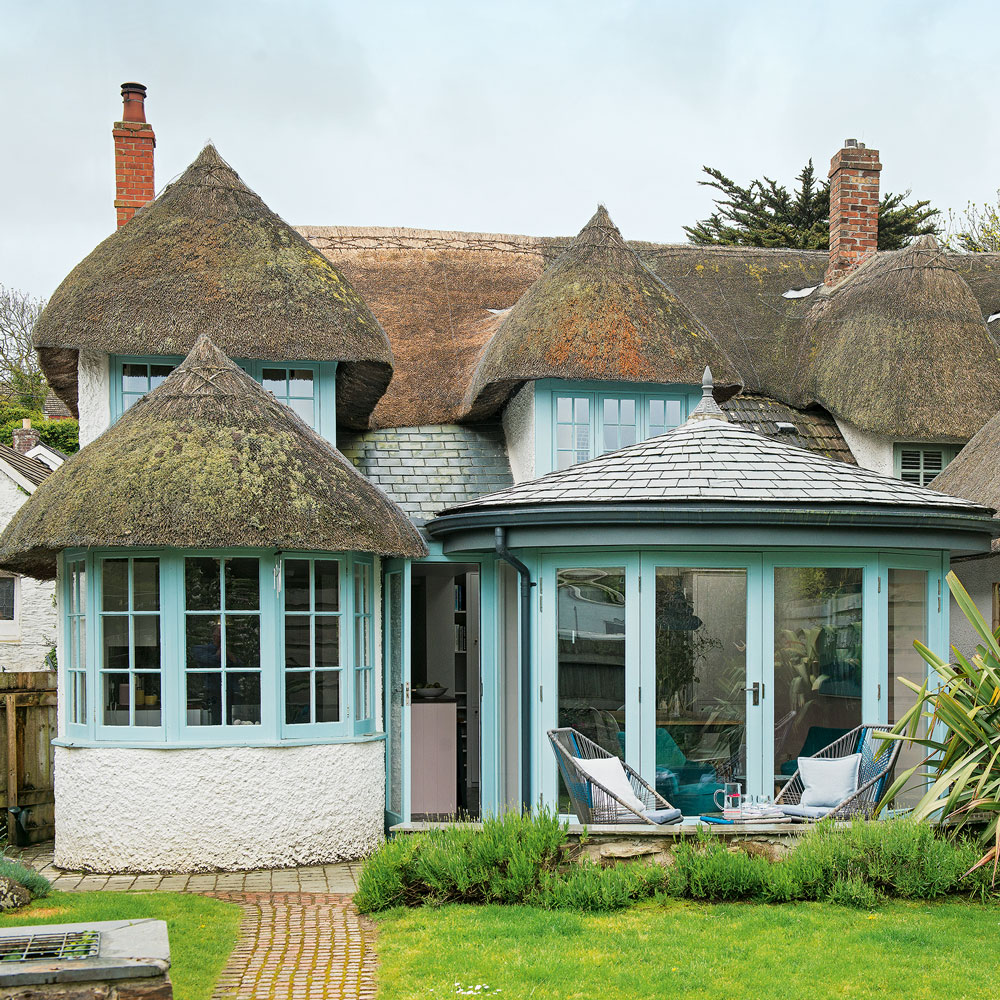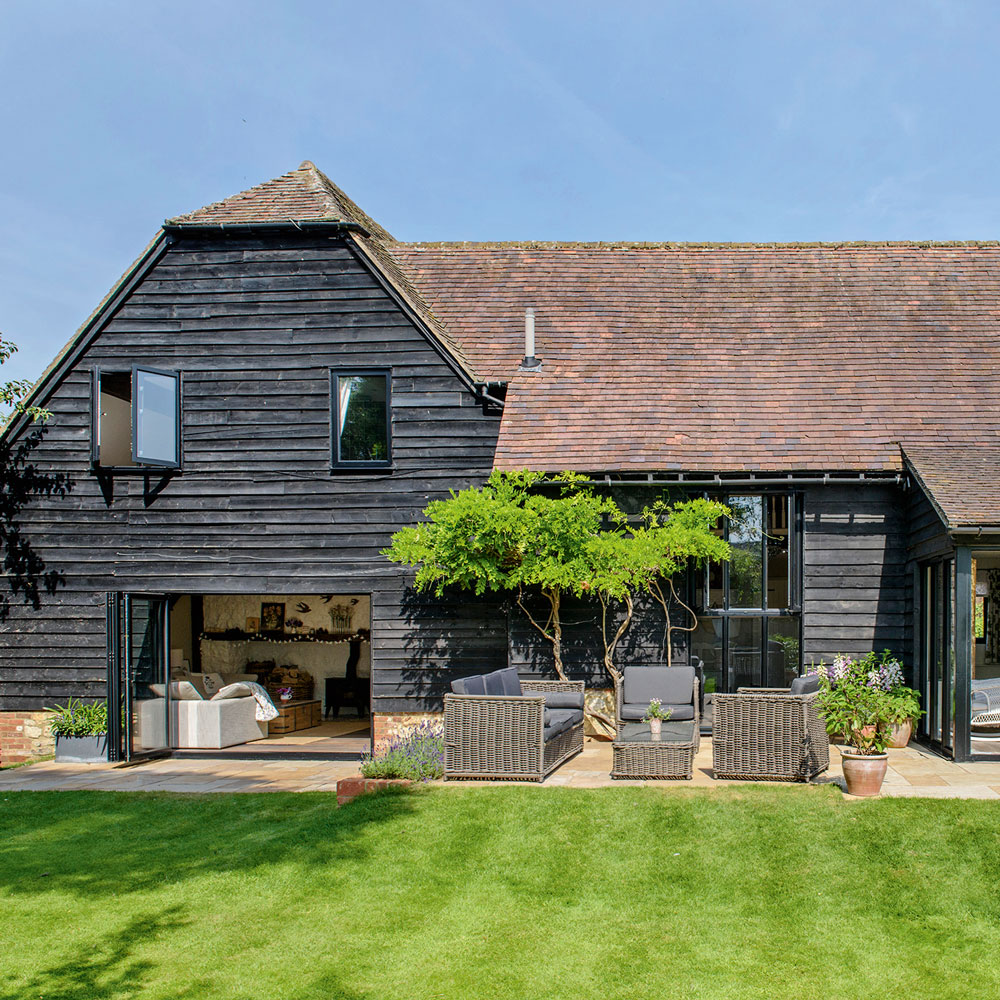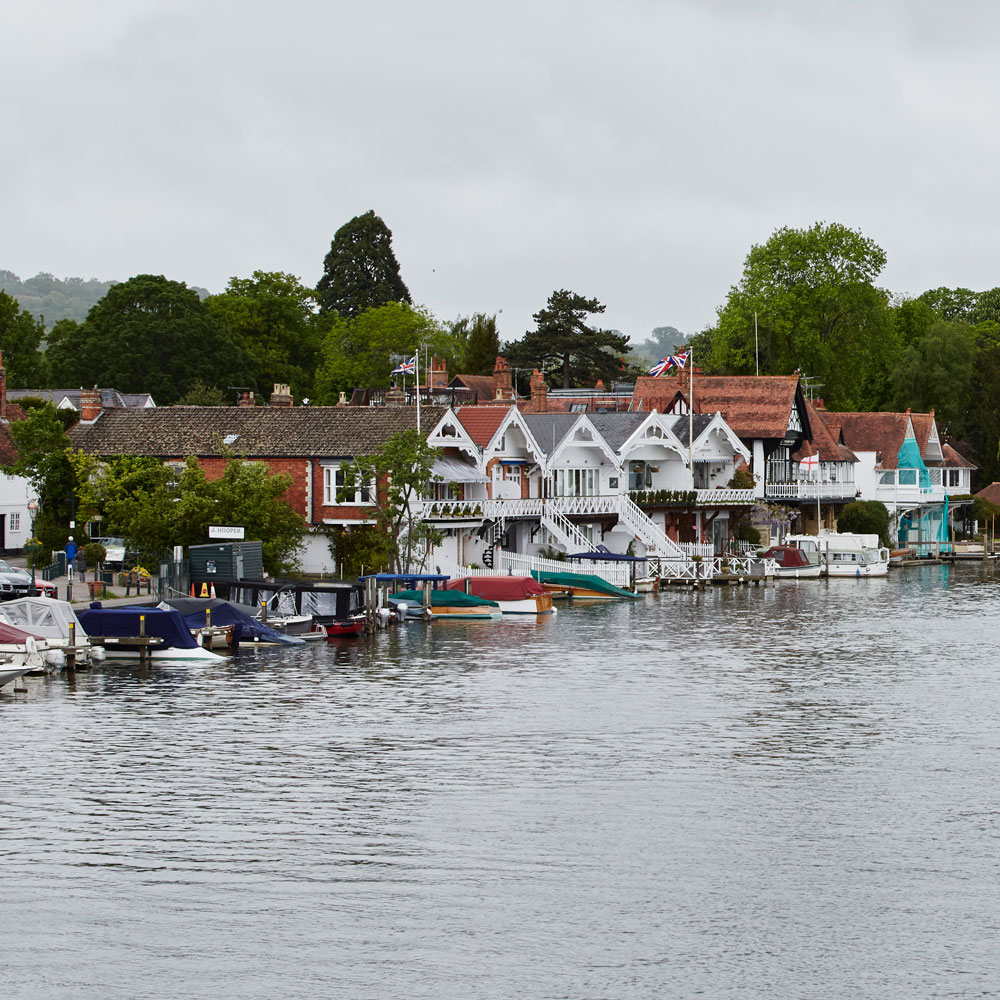Non-standard home insurance guide
If you live in an unusual property, you may need specialist home insurance to be properly protected. We explain what you need to know
Sign up to our newsletter for style inspiration, real homes, project and garden advice and shopping know-how
You are now subscribed
Your newsletter sign-up was successful
You may have always dreamed of living in a traditional thatched cottage or an ultra-modern prefabricated home - but if you don’t live in a standard property you may need non-standard home insurance.
Any home that isn’t made from brick or stone with a slate or tiled roof could be considered ‘non-standard’, so if you live somewhere out of the ordinary, you may not be eligible for a conventional home insurance policy. The cover you need is non-standard insurance – likely to be more expensive with fewer insurers to choose from.
Still, while this is an unavoidable aspect of living in an unconventional property, by choosing a policy carefully you can avoid paying more than you need to while still getting the right cover to protect yourself.
What is non-standard home insurance?

Home insurance broadly falls into two categories – buildings and contents. Buildings insurance covers the structure of your home – if it’s damaged by fire or a storm, for example – while contents insurance covers the belongings in your home. There are non-standard policies for both.
What counts as a ‘standard’ home insurance policy varies between insurers but you’ll generally need non-standard buildings insurance if your home is built in an unusual way or from unusual materials. This includes modular or prefabricated homes, timber or steel-framed properties, homes made from cob or wattle and daub, and those with thatched, green or shingle-tiled roofs. It also includes converted and listed buildings, such as barns.
You may also need non-standard contents insurance with an unusual property, especially if insurers consider it to be less secure or a greater fire risk. Listed buildings insurance is also an option.
Other situations in which you might need non-standard buildings or contents insurance is if your home is unoccupied for more than two months or at risk of flooding, or the property or its contents are high value.
Sign up to our newsletter for style inspiration, real homes, project and garden advice and shopping know-how
‘If you have expensive items, such as fine art or valuable jewellery, you would need a high net worth policy as anything worth over a certain amount wouldn’t be covered by a standard policy,’ says Graeme Trudgill, executive director of the British Insurance Brokers’ Association (BIBA).
You might even need non-standard insurance if you have a criminal record or have been declared bankrupt.

Non-standard home insurance policies cover anything that poses a greater risk to the insurer. If your circumstances mean you’re more likely to claim on the policy, or that your claim will be for a larger amount, an insurer will look to set up your cover accordingly. For example, homes built in unusual ways may be more likely to catch fire, more prone to rot or woodworm infestation, and more difficult and expensive to maintain.
The amount that buildings insurance covers you for is based on the rebuild value – how much it would cost to rebuild it from scratch. This isn’t the same as the value if you sold it, which would also include the value of the land and anything else that would affect how much a buyer would be willing to pay for it, such as its location.
A property that is built from specialist materials and that requires specialist tradespeople may be more costly to rebuild or repair if you need to make a claim. These may be region-specific or in short supply, making them harder to get. It’s also more likely that you would need to make a big claim for buildings or contents if your home was in a flood-risk area.
Some insurers don’t want to take on this extra risk or don’t cover these types of properties or circumstances in their standard policies so you need specialist insurance designed specifically for them. This usually means paying more. The policy can also be tailored to your needs.
What to consider when choosing a policy
s with standard insurance, there are various add-ons available when you take out a policy so think about whether you really need or want them before paying the extra, especially as you may already be paying more for a non-standard policy. It’s important to read the terms and conditions of your policy carefully but there are certain aspects you should pay particular attention to, to determine if you need home insurance.
‘Check the cover limit for valuables, which could be per item or collectively, and the security conditions.’ advises Graeme Trudgill. ‘And always check the excess. The higher the excess you agree to take on the bigger the discount you’ll get. Just ensure you would be able to afford it.’
The excess is the amount of a claim you have to pay yourself. There will be different compulsory excesses that apply to certain things, however. It could be as much as £1,000 or more for a subsidence claim.
A home in a flood-risk area could be especially tricky to insure. Some insurers won’t cover you at all or won’t cover you for damage caused by flooding. However, there are insurers that will provide protection, so you don’t have to accept this – an insurance broker can help you find one.
How to keep the cost of your insurance down

There are a number of factors that will affect the cost of your home insurance policy that you’ll have no control over, such as the age, location, value and size of your home, but there are things you can do to cut costs.
Other than saying no to unnecessary add-ons and agreeing to a higher excess, consider taking out your buildings and contents insurance with the same insurer. ‘It only has to do one bit of work for both so there are cost savings to be had,’ says Graeme Trudgill.
Paying for your policy annually, improving the security of your home and installing smoke alarms are other ways to pay less. It’s also important to shop around as prices can vary significantly.
Where can you buy non-standard home insurance?
Non-standard insurance is available from mainstream insurers as well as specialists. In some cases you may be able to compare and buy policies through comparison sites. But speaking to an home insurance broker can be particularly valuable if you have an unusual property or situation.
They will be able to identify the right insurers for you and find you the best deal. Contact British Insurance Brokers Association to find the specific insurance you need.